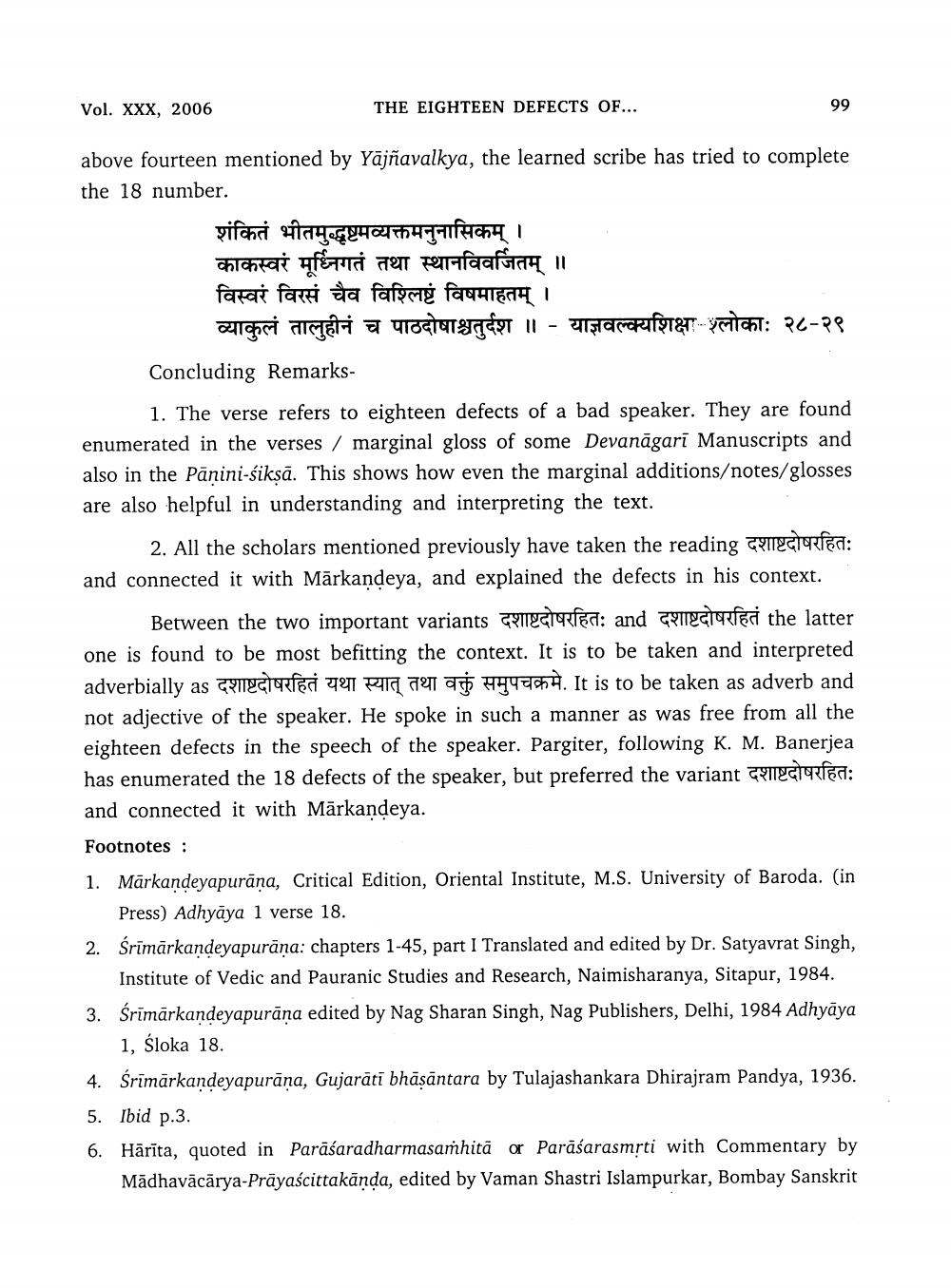________________
Vol. XXX, 2006
THE EIGHTEEN DEFECTS OF...
above fourteen mentioned by Yajnavalkya, the learned scribe has tried to complete the 18 number.
99
शंकितं भीतमुद्धृष्टमव्यक्तमनुनासिकम् ।
काकस्वरं मूर्ध्निगतं तथा स्थानविवर्जितम् ॥
Footnotes:
विस्वरं विरसं चैव विश्लिष्टं विषमाहतम् ।
व्याकुलं तालुहीनं च पाठदोषाश्चतुर्दश ॥ - याज्ञवल्क्यशिक्षा श्लोकाः २८-२९
Concluding Remarks
1. The verse refers to eighteen defects of a bad speaker. They are found enumerated in the verses / marginal gloss of some Devanagari Manuscripts and also in the Panini-sikṣā. This shows how even the marginal additions/notes/glosses are also helpful in understanding and interpreting the text.
2. All the scholars mentioned previously have taken the reading fed: and connected it with Märkandeya, and explained the defects in his context.
Between the two important variants दशाष्टदोषरहित: and दशाष्टदोषरहितं the latter one is found to be most befitting the context. It is to be taken and interpreted adverbially as दशाष्टदोषरहितं यथा स्यात् तथा वक्तुं समुपचक्रमे. It is to be taken as adverb and not adjective of the speaker. He spoke in such a manner as was free from all the eighteen defects in the speech of the speaker. Pargiter, following K. M. Banerjea has enumerated the 18 defects of the speaker, but preferred the variant nectarfed: and connected it with Märkandeya.
1. Märkandeyapurāṇa, Critical Edition, Oriental Institute, M.S. University of Baroda. (in Press) Adhyāya 1 verse 18.
2. Śrīmärkandeyapurana: chapters 1-45, part I Translated and edited by Dr. Satyavrat Singh, Institute of Vedic and Pauranic Studies and Research, Naimisharanya, Sitapur, 1984.
3. Śrīmärkandeyapurana edited by Nag Sharan Singh, Nag Publishers, Delhi, 1984 Adhyāya 1, Śloka 18.
4. Śrīmärkandeyapurāṇa, Gujarātī bhāṣāntara by Tulajashankara Dhirajram Pandya, 1936. 5. Ibid p.3.
6. Hārīta, quoted in Parāśaradharmasaṁhita or Parāśarasmṛti with Commentary by Madhavācārya-Prāyaścittakāṇḍa, edited by Vaman Shastri Islampurkar, Bombay Sanskrit




